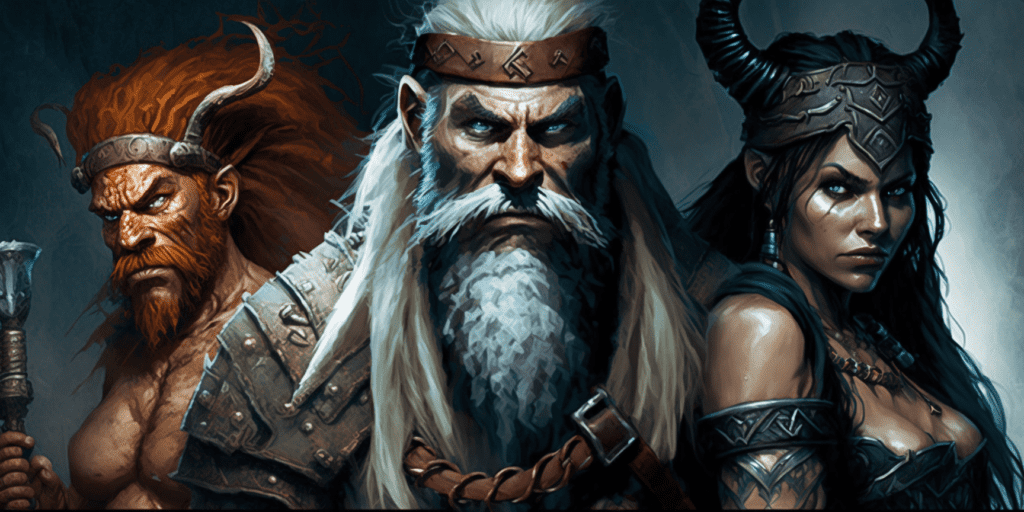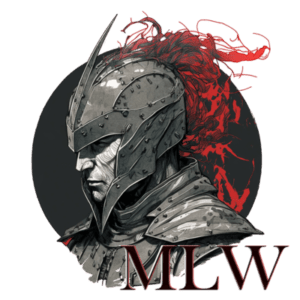DnD players want to play DnD campaigns that are fun and unique for them and their party. It can be hard to create an original DnD campaign without incorporating stuff that can seem regurgitated and somewhat played out.
It’s not easy to just come up with brilliant ideas and designs for DnD campaigns, but there are certain techniques and inspirations that you can use to your advantage, to make your DnD campaign more interesting. So, how do you come up with good DnD campaign ideas?
There are a lot of things you can do to come up with DnD campaign ideas. For example, you can put traditional mythology and literature in your campaign for inspiration and use other players’ feedback to make your campaign better, although make sure that you don’t spoil too many ideas if you do that. You can also use various online resources, such as BehindTheTables.
These are just some of the things that can be useful to use when creating a DnD campaign. Read more to find out other techniques and inspirations you can use to make your DnD campaign better.
How to Come Up With DnD Campaign Ideas

So, let’s go over some of the things you can do to improve your DnD campaign ideas. Naturally, these are all things you can do completely for free, using your imagination and some additional external input.
Use Player Feedback
Using players’ opinions is a valuable tool when constructing and progressing through a DnD campaign. For example, when you are working on the construction of your campaign, don’t be scared to ask your players for feedback.
What do they prefer, what type of stories, monsters, and so forth do they want? Make sure that you don’t spoil major plot lines if you do this, obviously.
You can also do this throughout your adventures, to steer the campaign in a good direction for all. One way you can do this is through surveys. It might sound a bit silly, but it’s a very good tool.
Provide your players with a simple multiple-choice survey and ask them about what they liked and didn’t like with your previous session. Make sure you formulate these questions in a neutral way, so as to not put focus on yourself.
This way, people won’t feel uncomfortable providing constructive criticism as it’s not directed at you, but rather at the campaign. For example, don’t formulate retroactive feedback as “did you like what I did with the campaign?”, but rather “did you enjoy the campaign?”.
Combine Campaigns
Another good idea can be to combine campaigns. This can be useful if you have a lot of different ideas. For example, you might have ideas for multiple campaigns, but they aren’t interconnected. You can combine these ideas into a single, funky, campaign.
Make sure that you have an overarching goal across all of these different ideas, however. It’s easy to get a muddled final product if the different ideas aren’t woven together in a proper manner.
One way to line the ideas up properly can be to do a timeline of events. After doing this, start piecing the ideas together and branch them out into story arcs.
Put In Traditional Mythology and Literature
A really good way of getting ideas for DnD campaigns can be to put in material from things such as mythology and fantasy literature.
This doesn’t necessarily have to involve stealing entire entities or characters, but mythology and good fantasy literature often have very robust structures and ideas that you can borrow.
Take Greek mythology as an example. In the world of Greek mythology, Gods aren’t immortal and inconceivable beings that never show themselves physically. Here, the Gods exist in the mortal realm, and they actively participate in shaping the world.
You can also borrow storylines from mythology and fantasy literature, for example (see Prometheus and the Theft of Fire and Pandora’s Box in Greek mythology). For fantasy literature, there are a lot of things you can take.
For example, world-building is usually very well-made in fantasy literature. They usually consist of large continents with different interesting cultures and landscapes. Characters are another thing that you can borrow from good fantasy literature.
It’s hard to pinpoint where you can search for these things, obviously, since it depends on what you’re looking for, but in general, I can strongly recommend authors such as George R.R. Martin and Steven Erikson to get inspiration for DnD campaigns.
Complementary Websites
There are a bunch of online, free resources you can use to help you create your DnD campaign. For example, there’s a subreddit called BehindTheTables that is incredibly useful for DMs. On the subreddit, everything from different dungeons to factions to food is listed. Use this to get inspiration for your campaign.
There are countless examples of DnD stuff that you can use for inspiration on their index, and I highly recommend it. Another website you can use is World Anvil. It’s another fantastic website for DMs designing campaigns.
World Anvil features writing assistance, maps, timelines, and other things you will find helpful when writing your campaign. It’s also free.
Don’t Worry About Being Unique
You don’t have to try to come up with never-tried-before storylines and worlds, in fact, this can often be a bad idea since there are good reasons why some “tropes” are popular. For one, they work.
Elves and Orcs have been a part of fantasy writing and DnD since the dawn of time, but people still love them and want them to appear. It’s the implementation of “tropes” that truly matters.
How to implement these tropes successfully is hard to say, because it all depends on what you want to accomplish, but make no mistake, tropes aren’t objectively bad when writing fantasy.
How to Create an Interesting DnD Character

Having interesting characters in your DnD universe will undoubtedly make the campaign better, after all, they’re the ones that inhabit the world. So, how does one create an interesting character in DnD?
Well, a lot of things go into this. The foundations of making an interesting character are in my opinion three-fold. The first thing you want to do is create interesting background lore for your character. This is essential to partly roleplay better, and partly be a part of a richer narrative experience.
The second thing you will want to do if you want to create an interesting character is to develop weaknesses. Characters that are “perfect”, or at least, lack distinctive weaknesses, are oftentimes kind of boring and one-dimensional.
Finally, make sure that you create meaningful relationships with both players and NPCs. This will facilitate interesting interactions, conflicts, and resolutions completely naturally.
Hopefully, these tips and tricks have helped provide you with some ideas. There are a lot more things you can do to make your character interesting, of course, but the three things listed above are in my opinion the most important.

